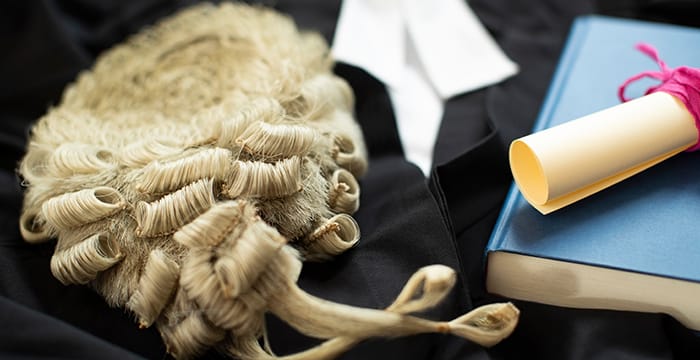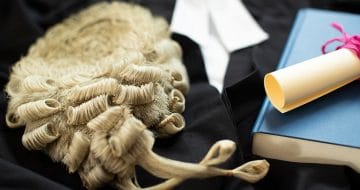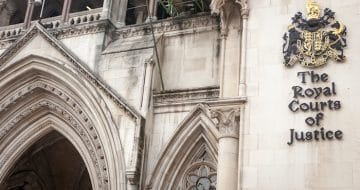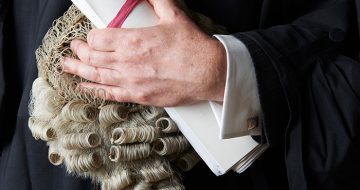High Court orders Kevin Stewart Farquharson be suspended from practice for two years for assault

A barrister disbarred for sexually assaulting a colleague on a “drunken bender” has got the sanction reduced to suspension on appeal.
Kevin Stewart Farquharson had pleaded guilty to sexual assault after the 2019 incident, which took place during what the Bar Standards Board called a “drunken bender” in a nightclub. Last year, a disciplinary panel ejected him from the profession on charges related both to the assault itself and subsequently asking the victim to lie about it.
But the High Court found that the panel had failed to take into account “clear mitigating factors” in deciding to impose the most serious sanction. The judge instead handed him a two-year ban.
Farquharson’s case came under an older version of the official guidance on sanction for sexual misconduct, which has since been toughened up.
The misconduct took place in September 2019 during a night out with chambers colleagues in Bristol. Farquharson is said to have had a “very difficult week” and “drank a substantial number of double whiskies”. He and the complainant, A, went to a nightclub where Farquharson repeatedly touched her sexually. He was kicked out by the bouncers and “recalled virtually nothing of the events”.
But the next morning, he texted both A and a third colleague asking them to lie about the events of the night. The court accepted that this was to “pacify the suspicions of his then partner, rather than to mislead a police investigation”. Cardiff Magistrates Court handed him a suspended sentence of six months’ imprisonment.
The Bar Standards Board hauled Farquharson, then 45, before a disciplinary tribunal. The regulator’s barrister asked: “What would the public think about a barrister who went out on a drunken bender, sexually assaulted a female colleague over a period of time and then tried to cover up what had been happening…?”. The panel decided that he should be disbarred.
On appeal, Mrs Justice Heather Williams upheld the findings of professional misconduct. In a ruling handed down on 13 May 2022, the judge wrote: “It is perfectly plain that the regulator’s reach may extend into a barrister’s behaviour in their private life and that there is no barrier or bright line drawn between professional and private conduct”.
But she found that the tribunal had got the sentencing wrong. At the time, the official guidance on sanctions for sexual misconduct said that for a custodial sentence, “the general starting point should be disbarment unless there are clear mitigating factors”. The panel had instead looked for “exceptional circumstances”.
Williams found that there were quite a few mitigating factors that should have been taken into account. These included Farquharson’s previous good character, clean disciplinary record and glowing references as well as his co-operation with the various investigations and “genuine remorse”. The judge also noted his total abstention from alcohol since September 2019 and his attendance at over 100 psychiatric appointments.
The judge also referred to confidential medical evidence and the “particular difficulties he experienced in the week immediately prior to the events”. These led her to conclude that it was “an isolated incident in difficult and unusual circumstances” — a specific mitigating factor for sexual misconduct under the guidance.
The guidance has since been reworded to remove this as a migitating factor and to toughen up the sexual misconduct section generally. There had been complaints that barristers who sexually assault colleagues were being treated too leniently.
Williams concluded:
“In all the circumstances I conclude that a long suspension is the appropriate and proportionate sanction, bearing in mind the guidance and objectives which I have already identified. This in itself is a very serious sanction, second only to disbarment. I do not consider that disbarment is necessary for the protection of the public or in order to maintain public confidence in the profession in all the circumstances. Accordingly, the substituted sentence in respect of Charge 1 will be a suspension of two years.”
On the separate charges relating to the attempted cover-up, disbarment was “clearly inappropriate” and shorter periods of suspension to run concurrently were imposed.
Farquharson’s barrister, regulatory lawyer Marc Beaumont, said: “A suspension is itself a very severe punishment for a barrister. Disbarment is akin to capital punishment and must be deployed as a sanction of very last resort”.
The two-year ban runs from 21 October 2021. The court made no order as to costs.
Beaumont told Legal Cheek that his client had nothing to add, but that the ruling had broader implications. He said:
“The regulator’s incursion into private correspondence in the form of text messages, has been tested. The view might be taken that to be safe from prosecution, no barrister should ever tell a lie in private life. This creates real uncertainty: we are now in a profession where private conduct may be policed by the BSB on the apparent basis under Article 8(2) that this is what the public and the Bar require and expect. The implications require very careful consideration.”


